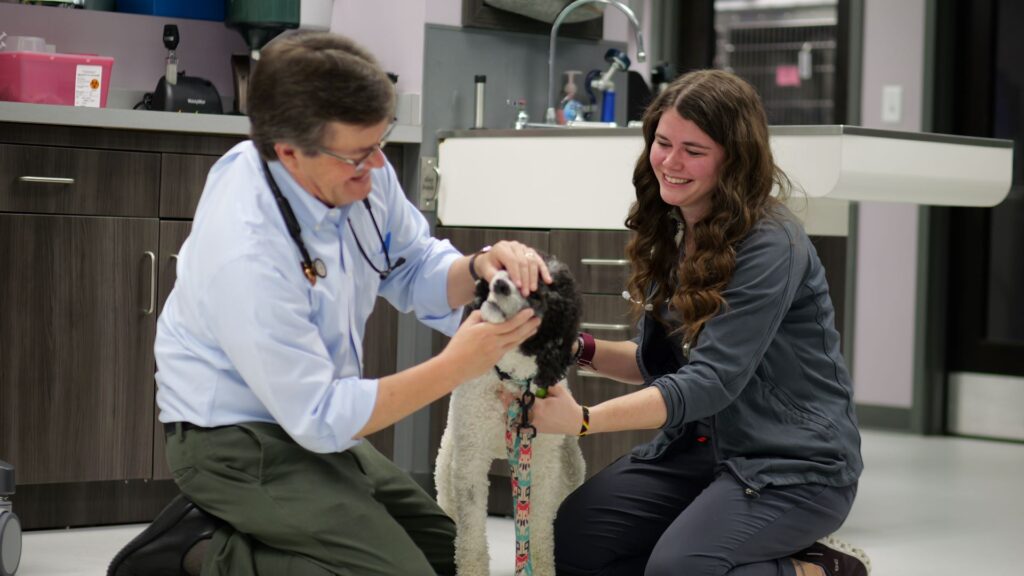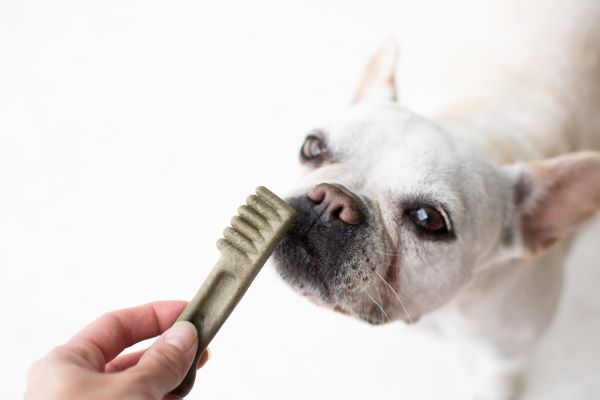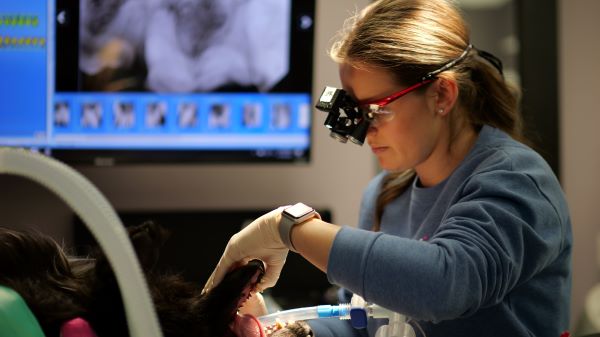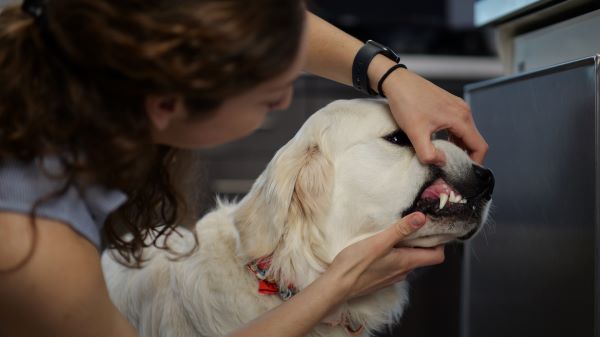
Did you know that over 80% of pets show signs of dental disease by the age of three? Despite this alarming statistic, pet dental care often goes unnoticed. Left unchecked, plaque, tartar buildup, and gum disease can lead to serious health issues—such as tooth loss, infections, and even organ damage when bacteria enter the bloodstream.
In this blog, we’ll debunk 10 of the most common pet dental care myths and provide facts to help keep your furry friend’s teeth in top shape.
Myth #1: Pets Don’t Need Dental Care Like Humans Do
Many pet owners believe that their pets’ teeth require no special care. However, just like humans, pets are susceptible to plaque, tartar buildup, and gum disease.
Myth #2: Bad Breath in Pets is Normal
While mild pet breath is common, persistent foul odor can indicate an underlying dental problem.
Myth #3: Dry Food Cleans a Pet’s Teeth
It’s a widely believed myth that kibble naturally cleans a pet’s teeth as they chew.

Myth #4: Chewing Bones or Toys is Enough to Maintain Dental Health
Many pet owners assume that giving their pets bones or chew toys eliminates the need for brushing or dental checkups.
Myth #5: Pets Naturally Maintain Their Own Oral Hygiene
Just like people, our pets’ mouths need regular care to reduce the inevitable build-up of plaque, tartar and bacteria. Some breeds have crowded mouths or unusual jaw shapes that can rapidly lead to dental disease, and some species (as owners of cats with resorptive lesions know) can have dental issues that occur due to genetic factors.
Myth #6: If a Pet is Eating Well, Their Teeth Must be Fine
Pets are experts at hiding pain and discomfort, making it difficult for owners to detect dental issues.
Myth #7: Anesthesia-Free Dental Cleanings Are Safer
Some pet owners fear anesthesia and opt for anesthesia-free dental “cleanings”. However, these cleanings only remove surface plaque from the crown of the tooth and do not address underlying problems below the gumline. Cleanings performed with an ultrasonic scaler also leave tiny fissures on the surface of the tooth that will rapidly fill with plaque unless the teeth are polished after scaling, and this step is often overlooked in awake patients. Ultrasonic scalers can damage or overheat a tooth if used incorrectly on a moving, awake patient.
Learn more about Harmony’s cutting-edge anesthesia protocols here: https://www.harmonyanimalhospital.net/hospital-services/veterinary-dental-services/anesthesia-dental-cleanings/

Myth #8: Home Remedies Work Just as Well as Professional Cleanings
At-home remedies such as regular brushing can be part of an overall dental treatment plan as they may remove a certain amount of plaque and freshen breath. However, they do not detect or address issues below the gumline, provide a deep cleaning, or treat gum disease effectively. Using unverified treatments can even be harmful.
Myth #9: Puppies and Kittens Don’t Need Dental Care
Many pet owners assume that young pets don’t require dental attention since they eventually lose their baby teeth. However, some dental issues such as proper positioning of the teeth, juvenile gingivitis in kittens, and retained baby teeth can affect our pets early in their development. In addition, regular dental care helps establish good habits and prevents long-term dental issues.
Myth #10: Brushing a Pet’s Teeth is Unnecessary
Some owners believe that brushing a pet’s teeth is either too difficult or unnecessary. However, brushing is the most effective way to prevent plaque and tartar buildup. For more information on how to start brushing your pet’s teeth, look here: https://www.harmonyanimalhospital.net/hospital-services/veterinary-dental-services/411-brushing-pets-teeth/
How to Properly Care for Your Pet’s Teeth
To keep your pet’s teeth healthy, follow these steps:
- Brush Daily: Use a pet-friendly toothbrush and toothpaste.
- Use Dental Chews: Opt for veterinarian-approved dental treats.
- Schedule Regular Checkups: Visit your vet for annual dental exams and cleanings.
- Monitor Their Diet: Feed your pet a balanced diet to support oral health.
Warning Signs of Dental Issues in Pets
Look out for these symptoms that may indicate dental problems:
- Bad breath
- Difficulty eating or chewing
- Drooling excessively
- Bleeding or inflamed gums
- Loose or missing teeth
- Pawing at the mouth

How Often Should You Take Your Pet for a Dental Checkup?
Most veterinarians recommend annual dental exams to remove plaque and tartar that routine brushing might miss. Pets with breed-specific risks or previous dental issues may need more frequent visits.
Schedule a Pet Dental Appointment Today
Pet dental care is a crucial aspect of overall health, and believing in common myths can lead to serious health issues. By debunking these misconceptions and prioritizing dental hygiene, pet owners can ensure their furry companions live healthier, happier lives. Schedule an appointment today to ensure your pet’s dental health remains a priority all year long!

